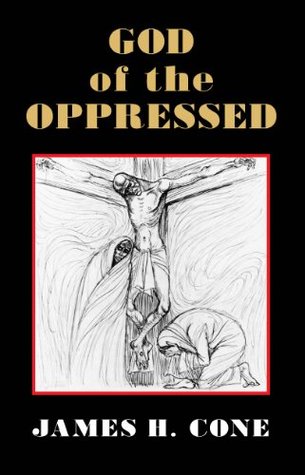More on this book
Community
Kindle Notes & Highlights
The great problem with dominant white theologians, especially white men, is their tendency to speak as if they and they alone can set the rules for thinking about God.
This notion glorifies suffering and encourages the victims of injustice, especially women, to accept their battered lot as willed by God—just like Jesus did.
No one can deny that Jesus’ suffering and cross have been interpreted by religious leaders in all Christian churches to encourage the passive suffering of the innocent, especially the poor and women in all groups.
Atonement theories, which image God as a Patriarch and Jesus as a passive surrogate, do not empower the oppressed to resist oppression but rather encourage them to accept it.
Since whites have been the most violent race on the planet, their theologians and preachers are not in a position to tell black people, or any other people for that matter, what they must do to be like Jesus.
I must listen to those who have the experience to see a particular danger clearer than I.
Jesus’ death expressed God's solidarity with the little ones—making them human in every sense of the word.
they have been so grossly misinterpreted by the dominant white culture against black resistance.
When one resists evil, suffering is an inevitable consequence of that resistance.
To avoid suffering is to avoid resistance, and that leaves evil unchallenged.
To resist evil is to participate in God's redemption of the world.
Resistance creates hope.
We must join the resistance by making solidarity with those who struggle for life in the face of death.
The black Church taught me how to deal with the contradictions of life and provided a way to create meaning in a society not of my own making. In the larger “secular” black community, this perspective on life is often called the “art of survival”; but in the black Church, we call it the “grace of God.” It is called survival because it is a way of remaining physically alive in a situation of oppression without losing one's dignity.
We call it grace because we know it to be an unearned gift from God who is the giver of “every good and perfect gift.”
Richard Wright is correct in his contention that “expression springs out of an environment,”
“We deplore the riots but sympathize with the reason for the riots.” This was tantamount to saying: “Of course we raped your women, lynched your men, and ghettoized the minds of your children and you have a right to be upset; but that is no reason for you to burn our buildings. If you people keep acting like that, we will never give you your freedom.”
Christian theology is language about the liberating character of God's presence in Jesus Christ as he calls his people into being for freedom in the world.
the theologian acts in the roles of exegete, prophet, teacher, preacher, and philosopher.
What has the gospel to do with the oppressed of the land and their
struggle for liberation? Any theologian who fails to place that question at the center of his or her work has ignored the essence of the gospel.
Blacks do not ask whether Jesus is one with the Father or divine and human, though the orthodox formulations are implied in their language. They ask whether Jesus is walking with them, whether
they can call him up on the “telephone of prayer” and tell him all about their troubles.
We do not struggle in despair but in hope, not from doubt but from faith, not out of hatred but out of love for ourselves and for humanity.
For theology to be black, it must reflect upon what it means
to be black. Black Theology must uncover the structures and forms of the black experience, because the categories of interpretation must arise out of the thought forms of the black experience itself.
the folklore of black people centers on the ability of the weak to survive through cunning, trickery, and
sheer deception in an environment of the strong and powerful.
The Bible is the witness to God's self-disclosure in Jesus Christ. Thus the black experience requires that Scripture be a source of Black Theology.
black experience is a source of the Truth but not the Truth itself. Jesus Christ is the Truth and thus stands in judgment over all statements about truth.
There is no truth in Jesus Christ independent of the oppressed of the land—their history and culture.
Jesus Christ is not a proposition, not a theological concept which exists merely in our heads. He is an event of liberation, a happening in the lives of oppressed people struggling for political freedom.
Therefore, to know him is to encounter him in the history of the weak and the helpless.
It is impossible to interpret the Scripture correctly and thus understand Jesus aright unless the interpretation is done in the light of the consciousness of the oppressed in their struggle for liberation.
Heresy is the refusal to speak the truth or to live the truth in the light of the One who is the Truth.
Although God, the subject of theology, is eternal, theology itself is, like those who articulate it, limited by history and time.
What people think about God cannot be divorced from their place and time in a definite history and culture.
Theologians must face the relativity of their thought processes: their ideas about God are the reflections of social conditioning; their dreams and visions are derived from this world.


